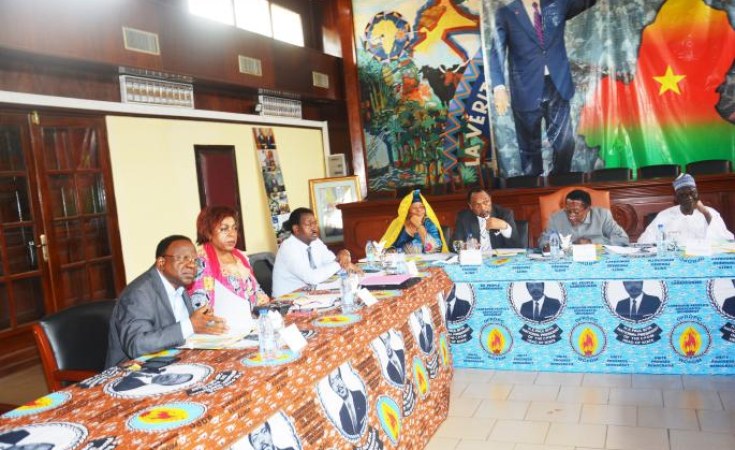Yaounde, Cameroon — Opposition parties in Cameroon have accused the ruling party of vote-buying in Sunday's Senate elections. Early results show the Cameroon People's Democratic Movement (CPDM) winning all seats in the poll which 10 opposition parties contested.
Singing and celebrating in the streets of the capital Yaounde, supporters of the CPDM already proclaimed themselves the winners of the March 12 Senate elections.
The CPDM is the party of Cameroon's long-serving leader, 90-year-old Paul Biya.
Local media, including state broadcaster CRTV, report that similar celebrations took place in at least nine other locations.
Early results from ELECAM, the elections management body, indicate that the CPDM won all 70 seats in Sunday's vote.
ELECAM said the elections, involving 15,000 designated members of the Senate electoral college, were free of glitches across the central African country. Voters in the restive western regions defied separatist threats and carried out their duties, the body said.
Opposition parties say the elections were marred by irregularities.
Denis Emilien Atangana was a candidate of the Front des Democrates du Cameroun, or FDC.
He said it was scandalous for the ruling CPDM to hire buses to transport all municipal and regional councilors who constitute the electoral college to polling stations. He also said the CPDM used threats, bullying and vote-buying to deprive voters of their freedom to make democratic choices. He also claimed, while in the buses, officials of the CPDM distributed money and threatened to punish voters who refused the bribe.
Atangana said opposition parties will file petitions with the Constitutional Council to cancel the results of the vote.
He said the government and ruling CPDM suffocate democracy by wanting to occupy all elected and appointed government positions.
Atangana alleged the polls were marred by low turnout and violence. The opposition says many voters in the volatile Northwest and Southwest regions did not vote due to threats from separatists who vowed to disrupt the process.
Separatists on social media, including WhatsApp and Facebook, say they stopped many electors from voting.
About 15,000 councilors in 60 divisions across Cameroon make up the electoral college. ELECAM says more than 97% of electors performed their voting rights.
The government says it protected all voters and candidates throughout the process.
The territorial administration minister, Paul Atanga Nji, said the government did not report irregularities that could jeopardize the outcome of the polls.
"More than 3,000 national and international observers were accredited by the ministry of territorial administration," he said. "They travelled across the country, and we hope that they will produce objective reports on the conduct of this election, which in our opinion was free, transparent and credible. As of now, no major incident has been reported in any of the 58 divisions of the country."
The Senate, or upper house of parliament, has 100 seats. Seventy are elected by the councilors. The other 30 will be appointed by President Biya, who has the power to select opposition members as senators.


